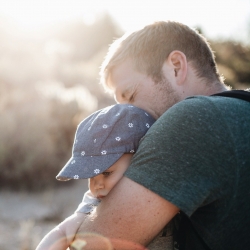To provide the best experiences, we use technologies like cookies to store and/or access device information. Consenting to these technologies will allow us to process data such as browsing behaviour or unique IDs on this site. Not consenting or withdrawing consent, may adversely affect certain features and functions.
The technical storage or access is strictly necessary for the legitimate purpose of enabling the use of a specific service explicitly requested by the subscriber or user, or for the sole purpose of carrying out the transmission of a communication over an electronic communications network.
The technical storage or access is necessary for the legitimate purpose of storing preferences that are not requested by the subscriber or user.
The technical storage or access that is used exclusively for statistical purposes.
The technical storage or access that is used exclusively for anonymous statistical purposes. Without a subpoena, voluntary compliance on the part of your Internet Service Provider, or additional records from a third party, information stored or retrieved for this purpose alone cannot usually be used to identify you.
The technical storage or access is required to create user profiles to send advertising, or to track the user on a website or across several websites for similar marketing purposes.
 Remote work, rapidly accelerated by the pandemic, is now essential to business success and worker productivity. However, as parts of the world open up and hybrid work becomes a reality, research claims that companies must invest in establishing flexible work policies and programs, and address a sizeable disconnect in trust between decision makers and employees, according to a Forrester study commissioned by LogMeIn, Inc. (more…)
Remote work, rapidly accelerated by the pandemic, is now essential to business success and worker productivity. However, as parts of the world open up and hybrid work becomes a reality, research claims that companies must invest in establishing flexible work policies and programs, and address a sizeable disconnect in trust between decision makers and employees, according to a Forrester study commissioned by LogMeIn, Inc. (more…)





 Corporate wellbeing could add £61bn to the English economy by 2025 through added productivity, if UK companies can create new wellbeing strategies and improve underperforming ones, according to a new study by
Corporate wellbeing could add £61bn to the English economy by 2025 through added productivity, if UK companies can create new wellbeing strategies and improve underperforming ones, according to a new study by 
 A new in-depth
A new in-depth 
 Employers are now more aware of their employee’s personal situation and family commitments than they were pre Covid-19, according to the
Employers are now more aware of their employee’s personal situation and family commitments than they were pre Covid-19, according to the 
 According to new data from
According to new data from 
 r workplace digital transformation and the urgent shift to remote working has seen the world experience two years of digital transformation in two months. New research from
r workplace digital transformation and the urgent shift to remote working has seen the world experience two years of digital transformation in two months. New research from 
 As Brits continue to spend an extensive amount of time at home, the importance of maintaining a good work-life balance has never been so vital. For their
As Brits continue to spend an extensive amount of time at home, the importance of maintaining a good work-life balance has never been so vital. For their 
 The pandemic and months of Zoom calls and remote work have begun to wear on us, so much so that in
The pandemic and months of Zoom calls and remote work have begun to wear on us, so much so that in 
 Last year, many organisations were forced overnight to adjust to new ways of working. Digital transformation accelerated, and collaborative activities were recreated virtually. But while teams have adapted functionally to maintain productivity, organisational leaders need to pay special attention to the “intangible” cultural aspects and their overall purpose.
Last year, many organisations were forced overnight to adjust to new ways of working. Digital transformation accelerated, and collaborative activities were recreated virtually. But while teams have adapted functionally to maintain productivity, organisational leaders need to pay special attention to the “intangible” cultural aspects and their overall purpose. 
 When it comes to job satisfaction, Denmark tops the list of the best places to work in digital in Europe – beating the UK, Germany and France – according to the 2020 Digital Talent Global Work Happiness Index. The Nordic country scored highly for work-life balance, family-friendly working models, purpose, personal safety and personal impact, which describes how much impact an individual feels they are making to their business.
When it comes to job satisfaction, Denmark tops the list of the best places to work in digital in Europe – beating the UK, Germany and France – according to the 2020 Digital Talent Global Work Happiness Index. The Nordic country scored highly for work-life balance, family-friendly working models, purpose, personal safety and personal impact, which describes how much impact an individual feels they are making to their business. 
 With a new national lockdown, the situation in the UK remains unpredictable and complicated, and renewed pressure to work from home has forced many organisations to reverse their back-to-work plans, according to a new study from
With a new national lockdown, the situation in the UK remains unpredictable and complicated, and renewed pressure to work from home has forced many organisations to reverse their back-to-work plans, according to a new study from 







February 3, 2021
What we all get wrong about motivation and the hierarchy of needs
by Mark Eltringham • Comment, Wellbeing
(more…)